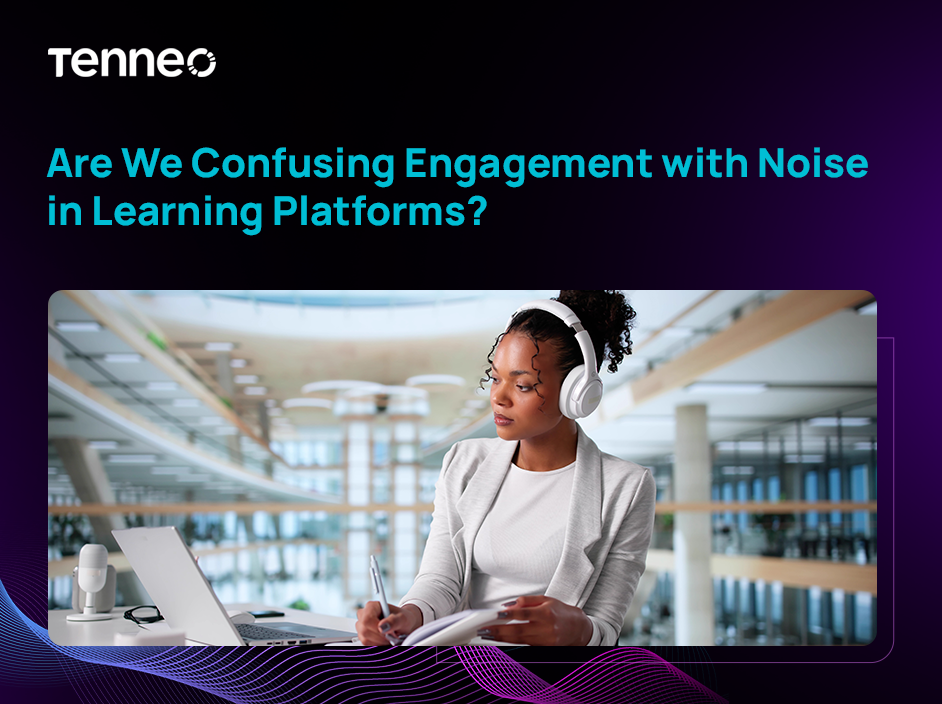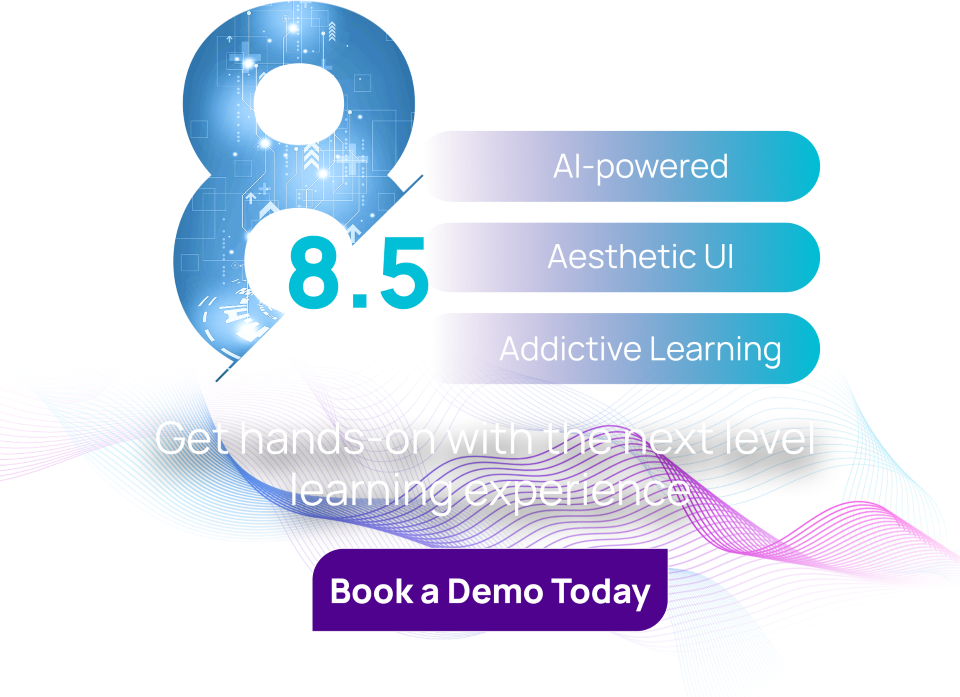
From Day One to Day Won: Seamless Onboarding in Every Phase with Tenneo LMS
April 16, 2025
Discover the right learning path for your team pre-curated efficiency or bespoke precision
May 1, 2025
From Day One to Day Won: Seamless Onboarding in Every Phase with Tenneo LMS
April 16, 2025
Discover the right learning path for your team pre-curated efficiency or bespoke precision
May 1, 2025Empower a Global Workforce with Culturally Inclusive Training to Drive Seamless Success

Picture this: your company rolls out a global training program with meticulous planning, creative resources, and high hopes. Yet, while one region embraces it, another finds it lacking. What went wrong? The disconnect lies in cultural differences in training.
In today’s hyperconnected globalised world, where businesses span continents and cultures, training isn’t just about delivering content; it’s about ensuring that content connects with your learners. It’s about making employees feel seen, valued, and understood. To truly engage your global workforce and build employee training diversity, you must leverage an enterprise LMS for culturally inclusive training.
How Overlooking Cultural Differences Can Cost You
Let’s be honest: a one-size-fits-all approach might seem efficient, but it’s a shortcut to disengagement. Neglecting employee training diversity can lead to significant challenges that ripple across your workforce:
- Miscommunication and Misunderstanding
Imagine a training video using humour or references that resonate in one culture but feel alien or even inappropriate in another. What starts as an attempt to engage can backfire, leading to confusion or alienation. When culturally inclusive training isn’t prioritised, your message gets lost in translation, sometimes literally. - No Connection, No Engagement
Engagement isn’t just about flashy content; it’s about relatability. Employees are more likely to participate and retain information when they receive inclusive training that reflects their realities. Without localised training programs, your training for multicultural teams risks becoming a box-ticking exercise instead of a meaningful learning experience. - Gaps in Team Dynamics
Diverse teams thrive on understanding and collaboration. However, without a global workforce training approach that addresses cultural nuances, you’re likely to see disjointed communication and weakened team cohesion. Cross-cultural employee training is crucial to breaking down barriers and fostering a collaborative spirit.
The takeaway? Ignoring cultural nuances doesn’t just hurt engagement; it undermines the effectiveness of your training initiatives, costing you time, money, and opportunities for growth.
Why Culturally Inclusive Training Matters
So, what’s the alternative? It’s all about designing learning programs that fit the requirements of global workforce training. This is where culturally inclusive training shines, offering benefits that resonate far beyond the training room.
- Enhances Employee Engagement
When training acknowledges cultural differences, employees feel understood and appreciated. A program that incorporates local examples, diverse perspectives, and inclusive language becomes relatable and engaging. The result? Improved participation, better retention, and empowered employees who are excited to learn.
- Builds Stronger Teams
For teams spread across borders, inclusive workplace learning lays the foundation for mutual respect and understanding. Employees trained to appreciate cultural nuances are better equipped to work together, breaking down communication barriers and strengthening collaboration.
- Prepares You for the Global Stage
In today’s interconnected world, businesses need employees who can navigate diverse markets. Global workforce training equips your teams with the cross-cultural awareness they need to excel, helping your company thrive in international markets.
Culturally inclusive training programs don’t just educate; they transform. They create environments where every employee feels they belong, leading to a more united, productive workforce.
Designing Training Programs for a Global Workforce
Crafting inclusive training doesn’t happen by accident; it requires strategic planning. Here are the hallmarks of an effective program:
- Localised Training Programs
Adapt content to suit regional needs, from language to examples. For instance, an anecdote about snowy commutes might resonate in one region but feel irrelevant in tropical climates. Tailoring your training to specific regions ensures it lands well with diverse audiences.
- Dynamic and Adaptive Content
Modern learners expect flexibility. Whether it’s interactive modules, video, or quizzes, offering multiple formats helps employees engage in ways that suit their preferences. Enterprise LMS platforms that make training interactive with Smart Content are game changers here.
- A Blend of Global and Local Perspectives
While it’s important to align with organisational goals, incorporating localised perspectives adds authenticity. By doing so, you bridge the gap between corporate strategy and regional execution, creating dynamic learning experiences that feel relevant everywhere.
How Tenneo LMS Brings Cultural Inclusivity to Life
Now, let’s talk solutions! Addressing cultural differences in training doesn’t have to be an uphill battle. With Tenneo’s Enterprise LMS, inclusivity becomes second nature. Here’s how:
- Real-Time Language Support
Tenneo’s Smart Content feature ensures no one is left out by providing real-time translations. With instant language translation capabilities, your employees can choose their preferred language, making the training programs accessible to a global workforce.
- Tailored Learning Paths
Every learner is unique. Tenneo offers personalised learning journeys, adapting content to the cultural and professional needs of each employee. This approach ensures training feels relevant and engaging, fostering a sense of ownership.
- AI-Powered Insights for Inclusive Training
With Tenneo, you can monitor how your employees interact with content, providing insights that help refine your approach. This data-driven strategy ensures continuous improvement in training for multicultural teams.
- Localised Content Programs
You can easily upload and integrate regional case studies, examples, and visuals into your training materials. By reflecting real-world contexts, Tenneo helps you deliver training that truly connects. Moreover, the Canva Integration enables you to create visually appealing content within the LMS.
Tenneo doesn’t just offer a tool; we provide a solution that makes your cross-cultural employee training seamless, impactful, and scalable.
Final Thoughts: Bridging the Cultural Gap
The world is getting smaller, and your training programs need to keep up. Addressing cultural differences in training isn’t just about ticking boxes; it’s about building an environment where everyone feels seen, heard, and valued.
With the right tools like Tenneo LMS, you’re not just creating training; you’re building a bridge that connects your diverse teams across geographies. It’s time to embrace the power of culturally inclusive training and turn your challenges into opportunities for growth.
Ready to make training the universal language of your business? Let’s do it together with Tenneo LMS. Get in touch with our experts to understand how.




